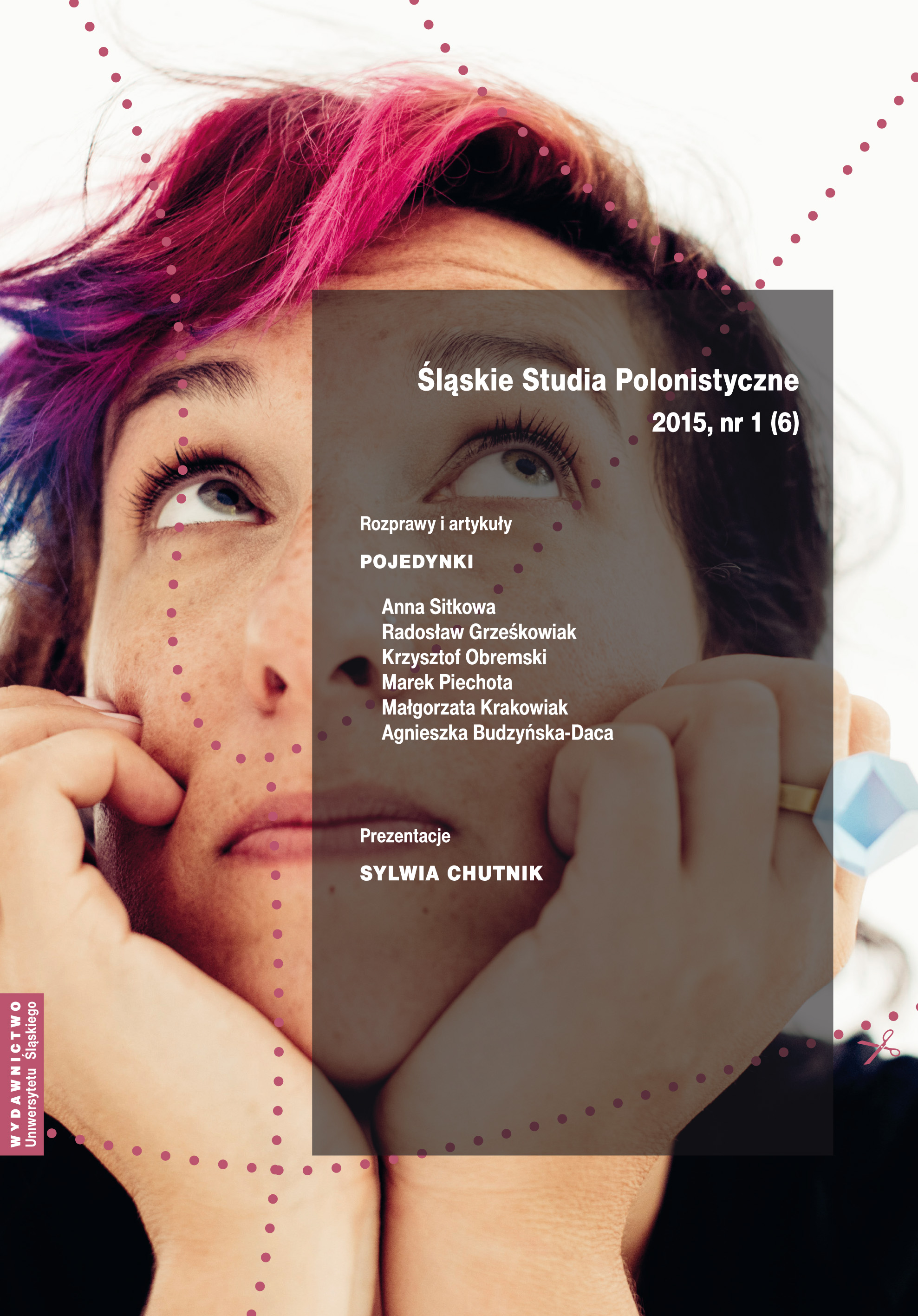Varia: Proza moralitetem podszyta. O modalności utworów Magdaleny Tulli
Varia: Prose streaked with the morality play. On the modality of works by Magdalena Tulli
Author(s): Małgorzata Węgiel-WnukSubject(s): Theatre, Dance, Performing Arts, Language and Literature Studies, Studies of Literature, Polish Literature, Theory of Literature
Published by: Wydawnictwo Uniwersytetu Śląskiego
Keywords: allegory; morality-play seriousness; theatre; irony; actors
Summary/Abstract: Although lacking elements of the poetics of drama, Magdalena Tulli’s prose draws extensively from the traditional Medieval morality play. The key figure here is allegory, which is often used in accordance with the convention of the morality play. This connection is referred to by the author of the following essay as the modality of the morality play, assuming the understanding of the category of modality after Włodzimierz Bolecki. In Tulli’s prose it manifests itself in that the plot is set beyond historic time and usually beyond specified space; the boundaries of the world are ultimately set by the distances between actors and props. Tulli’s writing refers the reader to universal issues present nunc et semper. She readily uses the concept of en ronde scene as a sole place of action (for instance the municipal square in “Skaza”). Before the eyes of a viewer – reader, she develops a plot told by allegoric characters; she does not give up moralizing but avoids exaggerated didacticism. The morality mode in Tulli’s writing is realized through the philosophical thesis of constantly emphasized inevitability of wander from birth to death.
Journal: Śląskie Studia Polonistyczne
- Issue Year: 2015
- Issue No: 1 (6)
- Page Range: 241-254
- Page Count: 14
- Language: Polish

